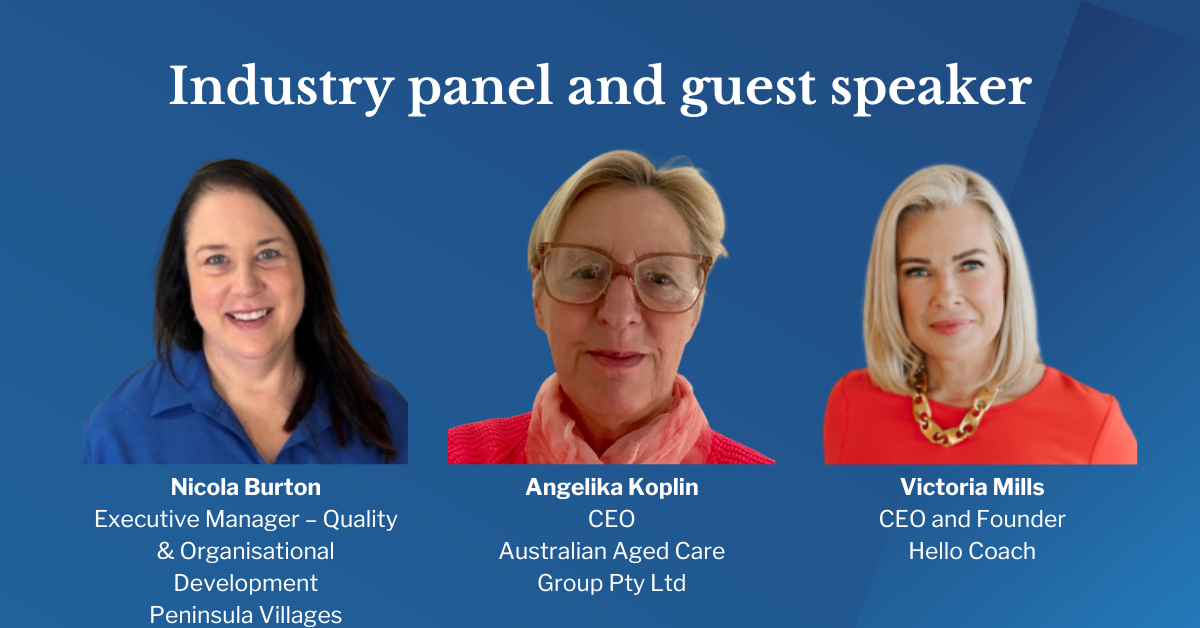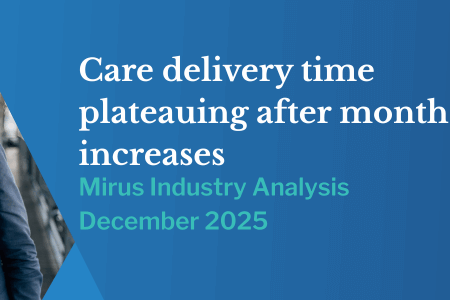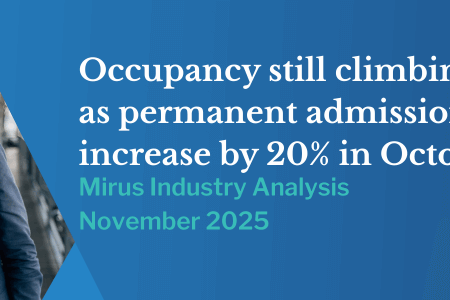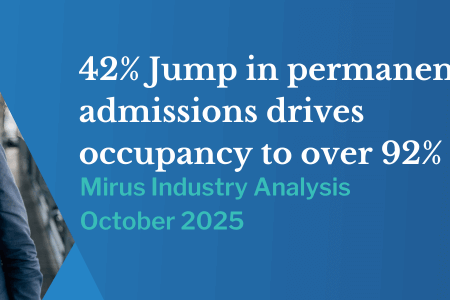What aged care providers can learn from reform ready leaders
July 22, 2025 | Provider Perspectives

By Dotti Gill, Marketing Manager
In a recent webinar, Nicola Burton, Executive Manager, Quality and Organisational Development at Peninsula Villages, Angelika Koplin, CEO of Australian Aged Care Group, and Victoria Mills, CEO and Founder of Hello Coach, an Australian coaching company, shared insights on preparing for the Aged Care Act reforms, set to take effect on 1 November 2025. Their strategies, drawn from extensive planning, highlight actionable approaches to meet new standards while enhancing resident care. From structured checklists to leadership coaching, the panel emphasised practical steps to navigate the reforms. Below, we explore their approaches and key takeaways.

Nicola’s strategy: Structured planning and workforce capability
Nicola Burton from Peninsula Villages described their “tiered approach” to reform planning—distinguishing between governance and operational priorities to maintain clarity and accountability. To manage this complexity, her team adapted the Department of Health and Aged Care’s operational readiness checklist into a live Excel tracker, mapping responsibilities and deadlines across functions.
“Being able to drill down and actually break it into steps makes it more manageable.”
The biggest area of focus has been aligning with the strengthened Aged Care Quality Standards. Peninsula Villages hosted 30 one-day workshops with operational managers and subject matter experts to map evidence against each standard. These sessions helped identify compliance gaps and prompted collaborative problem-solving across departments.
To support this, the clinical governance manager developed self-assessment tools using ChatGPT—illustrating how even small tech-enabled innovations can assist in large-scale reform work.
Organisational capability has also been a central theme. Training efforts are being embedded into the CQI plan via Manad Plus, and monthly toolbox talks, workbooks, and internal leadership programs are now part of a continuous learning model. A group of staff have even enrolled in a Diploma of Business Management to build budgeting and business planning skills.
“We’re trying to come up with some really innovative training ideas… making it meaningful, thought-provoking, and actually wanting them to change their practice.”
Nicola also spoke about the challenge of maintaining a stable workforce, particularly in an environment where many staff work across multiple providers. This requires consistent messaging, aligned care practices, and ongoing engagement to ensure reform efforts are sustained..
Angelika’s approach: Actionable checklists and resident engagement
Angelika Koplin took a similarly structured approach, translating the Department’s checklist into 44 individual actions. Each action was assigned to a leader, with linked guidance, due dates, and accountability measures. This helped her team avoid overwhelm and maintain momentum—though she noted the difficulty of keeping up with shifting government updates and broken weblinks.
A major area of focus for Angelika has been the shift away from additional and extra services to a higher everyday living fee. Her team undertook a comprehensive review of their existing additional service schedules, with a key goal of aligning them with resident preferences.
“What do you think residents really want?” she asked, involving frontline staff and consumers directly in the process.
This feedback led to a draft fee structure designed around what matters most to residents—particularly in shared service settings where residents on different packages still dine together. The exercise helped clarify what services could be streamlined, enhanced, or removed.
Workforce preparation is another priority. Her organisation used the ALIS system and a training needs analysis to identify skill gaps and support targeted learning. General managers were provided with extra resources to lead the training rollout.
However, compliance is layered. One of her sites is still undergoing accreditation under the current standards, meaning the team must hold both frameworks in play simultaneously.
“We can’t actually now throw everything out and say, okay, let’s go with the new ones,” she noted.
Angelika also highlighted the value of transparency in resident engagement. Her team established consumer advisory committees and invited residents to observe kitchen operations—demonstrating openness around food quality, a recurring area of concern in sector reviews.
Workforce retention was a shared concern across all panellists. As Angelika put it, “Getting the right staff, the right staff qualified enough… is a big thing.” Retraining staff to organisational standards is ongoing and resource-intensive.
Victoria’s insights: Leadership development for reform readiness
Victoria Mills brought a leadership lens to the conversation, stressing that change preparation is as much about culture and capability as it is about checklists.
“The number one thing that I’ve heard today is the importance of preparation.”
Her organisation, Hello Coach, supports aged care providers with live workshops and personalised coaching—especially for clinicians promoted into leadership roles without formal people management training.
“We technically go in and deliver live learning workshops… and then we support them with the one-to-one piece,” she explained.
Topics include managing performance conversations, emotional intelligence, delegation, and leading through change. A focus on mindset is central:
“Mindset is critical… without training, you’ve actually got quite a fixed mindset.”
Victoria also helps leadership teams create 90-day reform action plans that address specific requirements, such as strengthening resident engagement or aligning communication with the new standards. Change fatigue is another risk she actively addresses through structured check-ins, visible progress markers, and leadership role clarity.
A poll during the live webinar revealed workforce pressure as the top challenge (65%), followed by regulatory change (55%).
To improve alignment across teams, Victoria runs cross-functional workshops to support collaboration and psychological safety—encouraging clinicians and managers to break down silos and co-design solutions.
“You have to create an environment where staff feel safe to speak up, reflect, and adapt.”
Key Takeaways for Aged Care Providers
The panelists’ strategies offer practical guidance for reform readiness:
- Start with a shared framework.
Whether through a live spreadsheet or tailored checklist, centralising reform actions makes it easier for teams to track progress and clarify roles. - Engage your workforce early and often.
Both Nicola and Angelika are investing in staff capability—from frontline workshops to formal training. Creating space for learning helps embed reform changes in everyday practice. - Put residents at the centre.
Angelika’s consultative approach to fees and services is a reminder that reforms are about improving the resident experience—not just ticking compliance boxes. - Build confident leaders.
Victoria’s work highlights the value of coaching and practical leadership development. Teams need skilled, supported leaders to guide them through ongoing change. - Prepare for a moving target.
The reform environment is still evolving. Leaders are adapting as guidance changes—staying flexible while continuing to build capability and momentum.
The webinar highlighted the importance of collaboration, AI-driven efficiency, and strategic planning to meet the 2025 reforms while prioritising resident experiences. Providers must build adaptable systems to navigate evolving regulations and deliver exceptional care.
You can watch a recording of the webinar here.
Reform readiness checklist
To support providers through the changes, we’ve developed a Reform Readiness Checklist—a practical resource that translates the Department’s guidance into clear, measurable items. It’s designed to help your team track progress, identify gaps, and stay focused on what matters most.
Use it to support your internal reform planning and keep momentum at your next executive or board meeting. Download your free copy.


